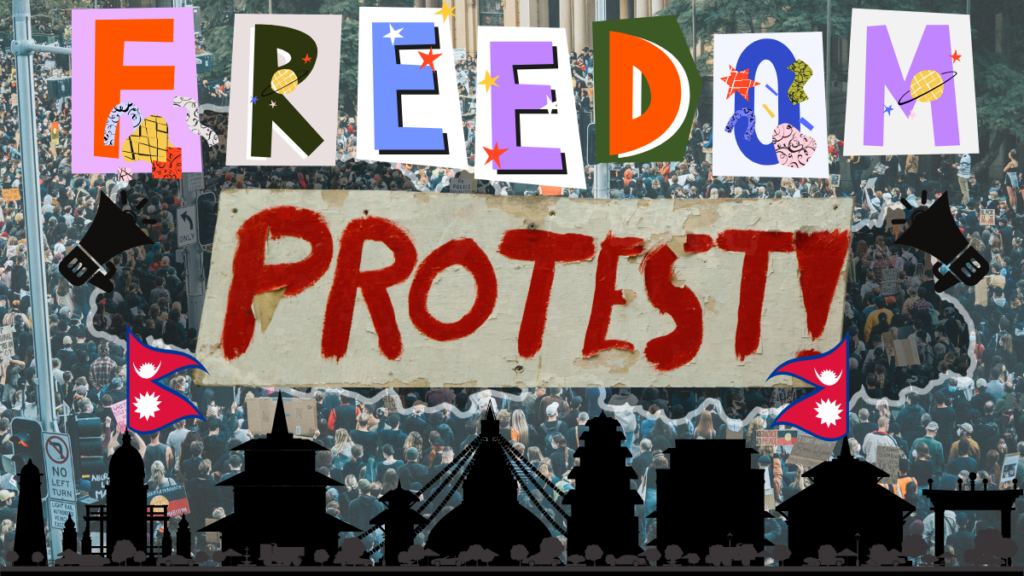Asian
Neighbour Nepal’s Social Media Bill: Free Speech or Government Control?
Read how Nepal's new Social Media Bill could silence free speech, impose heavy fines, and jail users for online activities.

A storm is brewing in Nepal over a newly introduced Social Media Bill that has ignited fierce opposition from influencers, journalists, activists, free speech advocates and the public at last. While the government claims to regulate digital platforms and curb misinformation, everyone warns that the bill endangers press freedom and could become a tool for silencing dissent.
Heavy Penalties for Hearty Content
The bill, registered in Parliament by the KP Sharma Oli administration, proposes strict fines and jail time for social media users who spread misleading or false information. If passed, it will force social media platforms to deposit up to NPR 10 million as security. Users found guilty of sharing misinformation, even unknowingly, could face up to five years in prison or a fine of NPR 1.5 million. The bill also demands that all social media platforms, including apps, blogs, and websites, obtain government approval before starting to operate.
Violators will face harsh consequences, warnings are:
- Fake pages & accounts: Three months in jail or a NPR 50,000 fine.
- Spreading misleading information: Five years in prison or NPR 1.5 million fine.
- Sharing harmful content: NPR 500,000 fine or five years in prison.
- Cyber harassment & trolling: Two years in prison or Rs 300,000 fine.
- Hacking & phishing scams: Three years in jail or NPR 1.5 million fine.
- Deepfake videos: Two years in jail or NPR 300,000 fine. If public officials or children are involved, the punishment will be even more severe.
Influencers and Journalists Say: This is a Direct Attack on Press Freedom
Nepal’s leading journalist federation, FNJ (Federation of Nepali Journalists) and a group of content creators who share infographic and news-related content have strongly opposed the bill, accusing the government of bypassing key stakeholders during its drafting.
Ram Prasad Dahal, FNJ General Secretary, condemned the move, stating, “This bill was introduced without any consultation with the media. It is an attack on free speech and journalism.” The FNJ has urged the government to revise the bill in line with international human rights laws.
Adding to the resistance, Taranath Dahal, Executive Director at Freedom Forum, raised concerns that the law could be misused. “This bill can intimidate those who speak out against corruption and injustice. It must be amended,” he wrote on X.
Is there a Fight for Free Speech?
Many activists argue that Nepal needs laws to tackle online abuse and cybercrimes. However, they insist this bill is more about controlling public opinion than ensuring digital safety. They don’t want to be in North Korea!
The Kathmandu Valley chapter of FNJ has issued a strong warning: “If this bill is not revised, we will be forced to protest. It contradicts Nepal’s Constitution and the essence of democracy.”
What if India Implements…
Imagine waking up one day to find that every post, reel, tweet, meme, or WhatsApp forward could land you in jail. A sarcastic post about a politician? Two years in prison. Sharing a viral joke without verifying its source? Hefty fine. Creating a parody account? Three months behind bars.
Before posting anything, you’d have to ask yourself “Is this worth a court case?” Sounds absurd, right? Well, if such a law ever came to India, political satire, activism, and even harmless social media banter could become criminal offences. The government monitors the internet like a classroom, grading and punishing every word. Would we still call it the world’s largest democracy, or just a country with WiFi and a rulebook thicker than our Constitution?
Nepal’s Social Media Bill raises a crucial question. Is it about regulating fake news, or is it about silencing critical voices? Will they choose to uphold democracy, or will they let this bill tighten the grip on digital expression? That is today’s world, no one can take it away like this! What do you think?





























